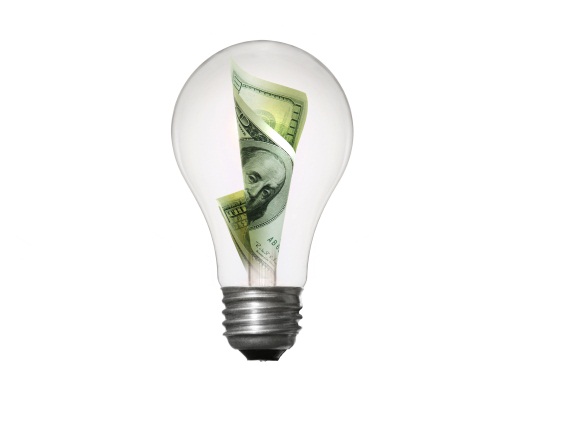Electricity Bill Boosters
Have you ever wondered what’s causing your electricity bill to climb higher and higher? Do you need to reign your bill in before it gets out of control? Or have you already crossed that line? Watching out for the biggest energy-consuming culprits can help you get your electricity bill back down to a more manageable level. Evaluate whether your bill may be impacted by these electrical villains:
1. Leaking water taps. It may seem like just a drop of water, but over the course of time it adds up to a substantial amount of water. A tap that drips once per second wastes 21 litres of water over the course of a day. If you have a well, that means 21 additional litres must be pumped, consuming more electricity. If hot water is leaking, the replacement water must also be heated. Toilets that are constantly running pose a similar problem.
For more info on energy efficiency click here
2. Televisions. Believe it or not, televisions may consume 10 percent (or more) of your household’s electricity. Typically, the bigger it is and the higher its resolution, the more energy it will use. Avoid using your television for background noise and, whatever you do, don’t leave it one when you leave the home. Only have your TV turned on when you are using it and, when you are shopping for a new one, be sure to compare energy ratings.
3. Air conditioners. Though your air conditioner may only be needed for a short period of the year, it can add a significant amount to your electricity bill. Avoid leaving it on when no one is home, set it to maintain a temperature that is a degree or two higher than it currently does, and schedule your trips to air-conditioned businesses during hotter periods of the day. When shopping for a new air conditioner, find one which requires a minimal amount of electricity.
4. Faulty appliances. Appliances on their last legs can cause a spike in energy consumption. If your refrigerator or freezer door is not sealing correctly, for instance, you will expend much more energy trying to keep your food cold. Likewise, an air conditioner that is leaking refrigerant will have to work harder to cool your home. Fixing or replacing these appliances can pay for itself in a relatively short period of time. If shopping for a new one, however, be sure to consult energy guides.
5. House guests. You may enjoy the visit, but be prepared for a higher electricity bill due to factors such as more showers or baths taken, more meals prepared, more loads of laundry washed, and more dishes being cleaned.
6. Hot water heater. Your hot water heater is perhaps the biggest electrical load in your home, and–when something goes wrong–costs can quickly add up. If a sediment buildup or corrosion develops, your tank may need to work harder to maintain the same temperature.
7. Phantom power. Whether for an internal battery, a digital clock, or a remote control sensor, many of the electrical components in your home use electricity even when they are turned off. DVD players, computers, televisions, and even coffeemakers can consume power while switched off. This “phantom power” drain can only be eliminated by unplugging them or turning off power to their power bar.
8. Rechargeable gadgets. Cell phones, MP3 players, tablets, laptops, and portable gaming systems have become integral parts of our lives, but each requires frequent recharging. All this energy consumption adds up.
9. Empty refrigerators or freezers. Refrigerators and freezers work most efficiently when they are full. Those are are left empty (or near empty) work harder to cool all the empty space, and you receive no benefit from the higher electricity bill. If your refrigerator or freezer is empty, you would be better served by turning it off completely.
10. Sneaky neighbours. Less-than-ethical residents in townhouses and apartments have on occasion been caught stealing power from their neighbours. If you notice an unexplained spike in your electricity bill, check to make sure there are no extension cords running from your property to your neighbour’s.

